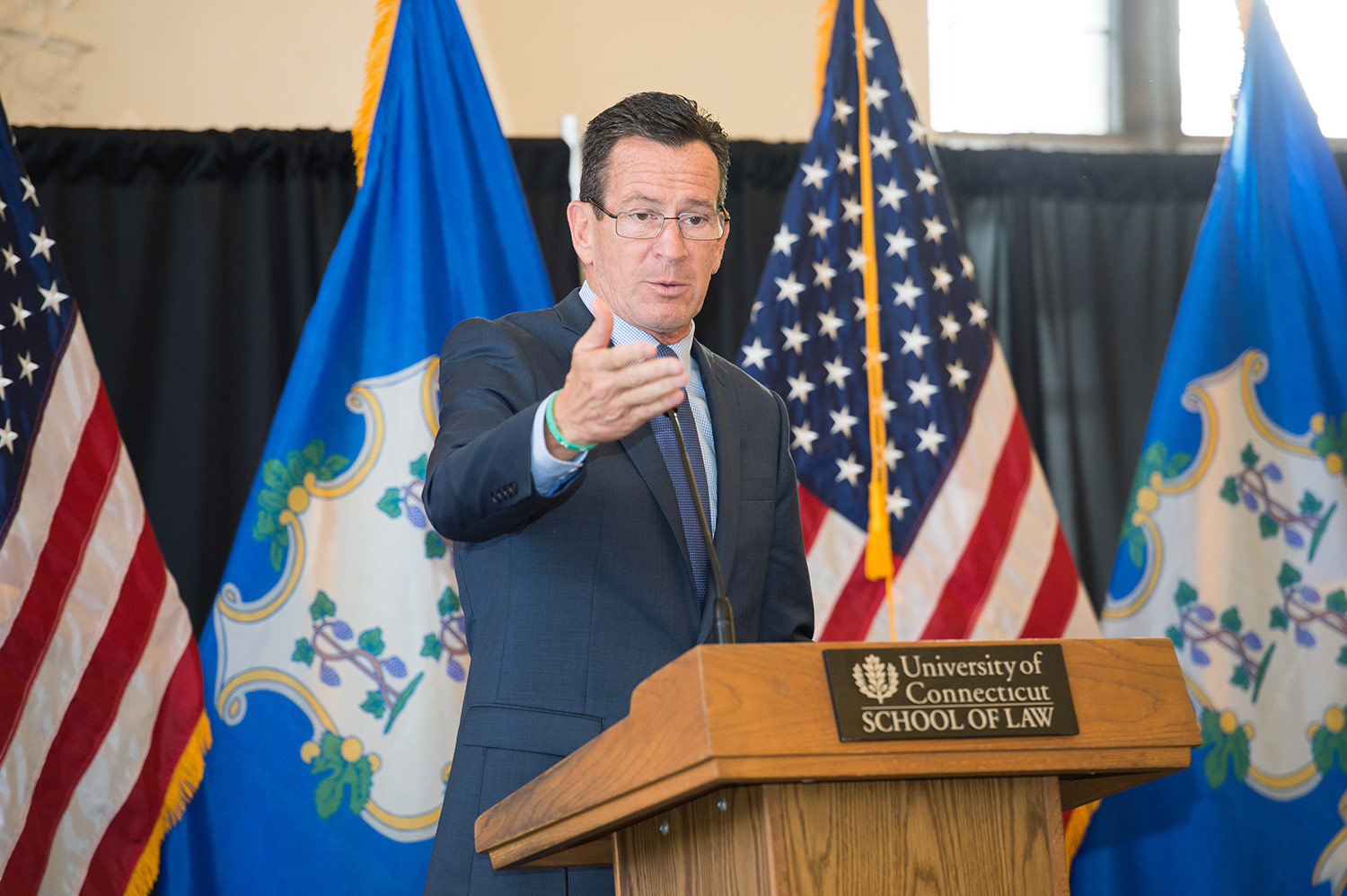Gov. Dannel P. Malloy, speaking at the largest symposium ever hosted by the UConn School of Law, proposed a groundbreaking series of reforms to the criminal justice system of the state, and indeed the nation.
In an address at the annual Connecticut Law Review Symposium on Nov. 6, 2015, “The Other One Percent: Prison Reform from Sentencing to Parole,” Malloy announced his proposals for first-in-the-nation initiatives to improve the effectiveness and the fairness of Connecticut’s treatment of prisoners and arrestees held on bond.
Malloy, a lawyer who started his career as a prosecutor in New York, outlined a bold expansion of his administration’s “Second Chance Society” reforms. His proposals included raising the cut-off age for treatment as juvenile offenders from 17 to 20 years old. Malloy also proposed exploring new approaches to the incarceration of low-risk young adults aged 21 to 25 that would improve the chances of rehabilitation – from having their cases heard confidentially with records expunged, to separating them when incarcerated to protect them from would-be “criminal mentors” in adult prisons. He also called for a wide reform of the bail bond system to tie it to the danger posed by the defendant rather than jailing people mostly on the basis of their financial inability to post bond.
“We need to become a society of permanent progress, not permanent punishment,” he said. “That means we need to continue innovating, and we need to keep leading. Some of these ideas are first-in-the-nation initiatives.”
UConn Law Dean Timothy Fisher introduced the governor and welcomed the audience. “We are the law school of the State of Connecticut, and that means that we are the venue for very crucial discussions at the intersection of law and social policy,” he said. “Today’s program is a perfect example of that.”
In opening the event, Wesley Cain, editor-in-chief of the law review, noted that it was the largest symposium ever held at the law school. About 200 people, including state policy makers, legislators, activists and academics, packed the Reading Room in William F. Starr Hall, and dozens more watched via streaming video in the William R. Davis ’55 Courtroom. The event also drew a large contingent of reporters from the state’s news outlets.
The symposium included panel discussions of three key stages of a convicted individual’s experience: sentencing, prison conditions and re-entry. Introducing the panels, UConn Law Professor Miguel de Figueiredo said an examination of the “back end of the justice system” is timely because a consensus that was “unthinkable even a decade ago” has emerged across the political spectrum about the need for reform.
During the three panels, prominent experts from the legal academy and the judicial system covered key issues in criminal justice that require reexamination. Those included lengthy mandatory minimum sentences, overcrowding and widespread solitary confinement, the efficacy of sex offender registration regimes, and force feeding hunger striking prisoners. The program concluded with a presentation by Hartford mayor-elect Luke Bronin about the steps he hopes the city can take to assist the social reentry for the large number of former inmates returning to and living in Hartford.



